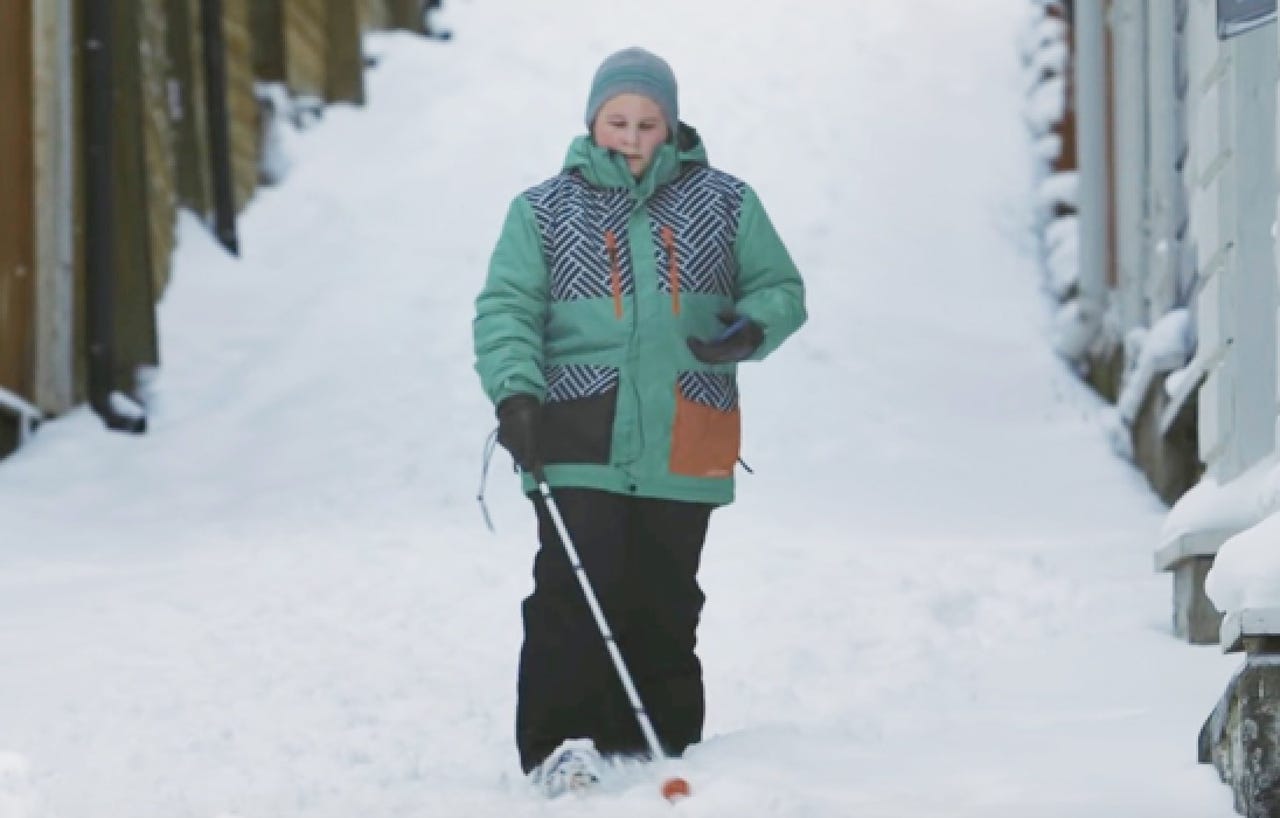The best smart city, citizen projects worldwide


BlindSquare
BlindSquare is a GPS-based app which has been developed to help the blind and visually impaired navigate their way around city environments. The app provides audio descriptions of the environment, points of interest, street intersections as well as turn-by-turn directions whether or not the user is walking or traveling on a bus or train.
The app can also be used to pull up nearby local information such as restaurant menus. While not strictly designed for the smart city, BlindSquare is certainly an app which helps visually impaired residents or tourists get the most out of urban environments.
Via: BlindSquare
GeMo
GeMo is an interesting project around sharing electric cars. The shared use of e-mobility: vehicles, data and infrastructure, or "GeMo" for short in German, includes software which makes e-car sharing in cities practical; including fast charger infrastructure, a smartphone app, fleet management and a cloud-based system which helps vendors distribute and account for electric vehicles involved in city sharing.
Via: GeMo
Madrid smart parking meters
In Madrid, smart parking meters are finding themselves on city streets. As a way to try and entice consumers into driving more eco-friendly cars and reducing air pollution in the city, a 20 percent surcharge is slapped on cars which produce the most pollution. Electric cars park for free.
Via: The Guardian
BigBelly
BigBelly is a smart city platform which aims to modernize city services including how waste is managed. The service is well-known for solar-powered bins which compact rubbish but now has extended its offering to free Wi-Fi hotspots, recycling and waste management, and analytics for city planners to target the areas producing the most waste.
Via: BigBelly
FixMyStreet
The FixMyStreet platform is an open system for councils and local authorities to help residents quickly report problems such as potholes or broken street lamps to authorities via either website or mobile apps. Given these reports, councils can then inform residents when issues have been fixed.
Via: FixMyStreet
EU-GUGLE
EU-GUGLE is a smart city organization focused on developing large-scale building renovation with a small environmental impact. Currently operating as a pilot program in six cities -- Vienna, Aachen, Milan, Sestao, Tampere, and Bratislava -- the group hopes to renovate a total of 226,000m² of living space during five years with a 40 to 80 percent primary energy saving.
Via: EU-GUGLE
Strawberry energy
Strawberry energy, originally formed in Belgrade, Serbia, is the creator is the Strawberry Tree, a solar device which provides city residents free mobile charging, local information, environmental sensors and free Wi-Fi. These trees are found in cities across Europe and now have been extended through a partnership with Ford to include so-called Smart Benches which provide the same services.
Via: Strawberry energy
City-Zen
City-Zen is an interesting smart city project which uses the cold energy in drinking water fountains produced in winter to provide the liquid cooling required for other uses. By storing this energy into underground aquifer thermal energy storage (ATES), the extracted cold is currently used for pharmaceutical processes but is expected to move into other regions, potentially for buildings and data centers.
Via: City-Zen
Rooftop Revolution
Rooftop Revolution, starting up in the Netherlands, is a crowdfunding-based project to help citizens contribute to a smart city. The scheme offers help in creating roof gardens, online toolkits, and a platform for others to contribute -- not only reducing the concrete jungle and make something gorgeous out of unused urban space but as a contribution towards reducing pollution.
Via: Rooftop Revolution
ShotSpotter
ShotSpotter is gun detection software designed for modern cities. With gun crime a constant issue, the makers of ShotSpotter, SST, offer the solution to detect and locate gunfire through sensors embedded along city streets. The idea behind the technology is to improve emergency response times by gauging what is likely to be a gunshot -- and not, perhaps, a slammed car boot -- and first response rates.
Via: ShotSpotter
Forage Tracking
Forage Tracking is a project in Brazil which tracks so-called "informal recyclers" who collect material in cities for recycling as a way to make a living. This material is sold back to manufacturers for reuse, but the new scheme aims to turn collection into an organized work schedule with routes and management included. In order to do so, sensors are attached to carts and trucks to build up a map of city grids and collectors.
Via: MIT
Smart Blocks
Smart Blocks is a US program designed to help apartment owners and managers to improve the energy efficiency of common property in buildings. High-rise apartment owners use on average 25 percent more energy than those in detached homes, and up to half of this energy is due to common areas. Smart Blocks offers plans, systems, and advice to reduce this energy usage and make urban living smarter and more sustainable.
Via: Smart Blocks